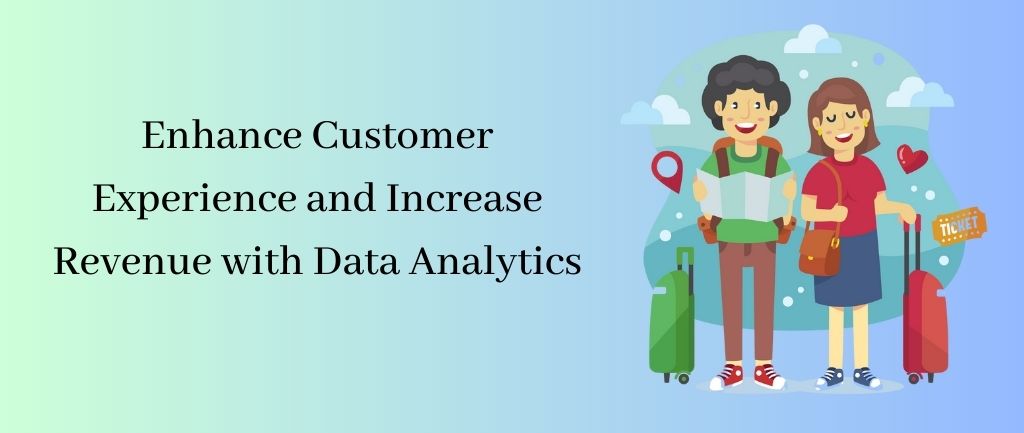
Travel Industry is leveraging Data Analytics to Enhance Customer Experience and Increase Revenue
The travel industry is a highly dynamic and continuously evolving sector that comprises hotels, airlines, rental car agencies, and cruise lines, among others. These companies are always looking for innovative ways to attract and retain customers, and one of the key ways to remain competitive is through data analytics.
Data analytics in the travel industry involves utilizing advanced analytical techniques to examine customer behavior, preferences, and transactions data. The insights and patterns uncovered through data analytics can help travel companies improve their products and services, better target their marketing efforts, and ultimately increase revenue.
According to Statista, the projected revenue for the travel and tourism market is expected to reach US$854.80 billion in 2023, with an annual growth rate of 4.41% between 2023 and 2027, resulting in a projected market volume of US$1,016.00 billion by 2027. Additionally, 74% of total revenue in the Travel & Tourism market is expected to be generated through online sales by 2027.
There are several ways in which data analytics is currently being used in the travel industry:
Personalized Marketing: By analyzing customer data such as search queries, previous bookings, and browsing behavior, travel companies can create targeted marketing campaigns that are tailored to each individual customer. This approach increases the chances of conversion, enhances customer experience, and promotes loyalty.
Customer Segmentation: Data analytics helps travel companies segment their customers into different categories based on their travel behavior and preferences. This enables companies to create targeted products and services that meet the specific needs of each customer segment. For example, an airline can create a loyalty program that rewards frequent travelers with exclusive perks, while a hotel can offer personalized room service options based on the guest’s dietary preferences.
Predictive Analytics: Predictive analytics is another powerful tool that travel companies are increasingly using. By analyzing historical data, travel companies can predict future customer behavior and preferences, as well as anticipate market trends. This enables them to make more informed decisions about pricing, marketing, and product development.
Competitive Analysis: Data analytics can also be used to gain insights into the competition. By analyzing data on competitors’ pricing, product offerings, and customer reviews, travel companies can better understand how to differentiate themselves in the market and offer unique value propositions to their customers.
Operational Efficiency: Data analytics can help travel companies optimize their operations and improve efficiency. By analyzing data on things like flight delays, baggage handling, and check-in times, companies can identify areas for improvement and make changes that enhance the customer experience and reduce costs.
In summary, data analytics is revolutionizing the travel industry. By leveraging the power of data, travel companies can gain valuable insights into customer behavior, preferences, and market trends. This enables them to create more personalized products and services, target their marketing more effectively, and ultimately increase revenue and profitability. As the industry continues to evolve, data analytics will become an increasingly important tool for staying ahead of the competition and meeting the changing needs of customers.